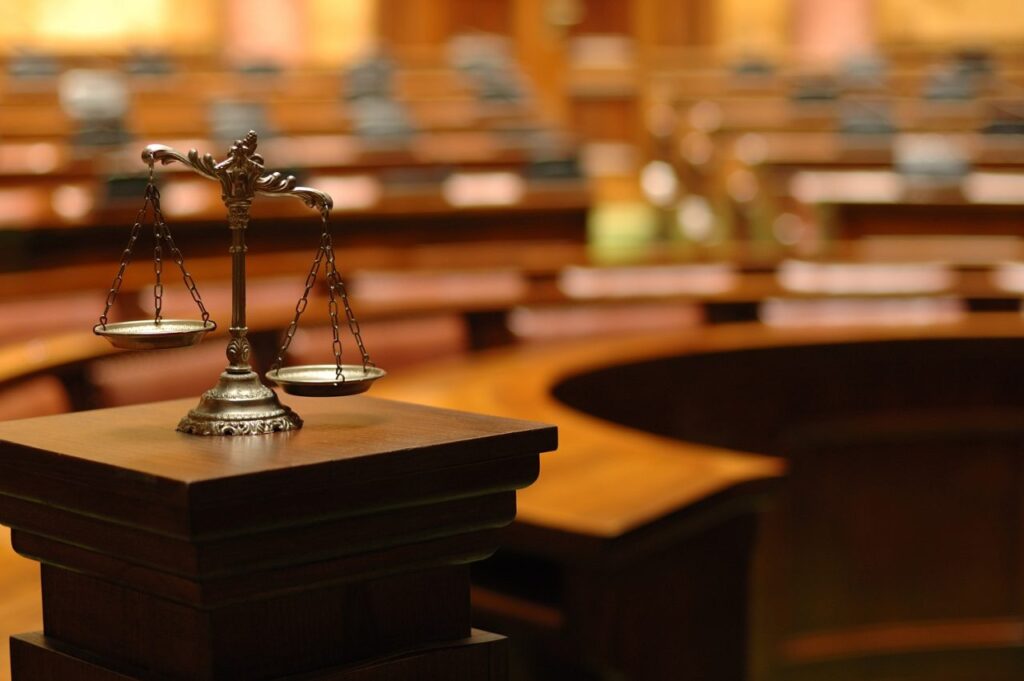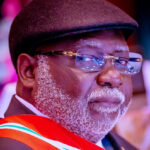
Achieving this will require adaptations in the institutional roles involved presently in judicial appointments. It is essential to recall that judicial appointments are the only one in which all three branches of government are actively involved. Ordinarily, the judiciary originates the nominations, parliament confirms and the executive appoints. In Nigeria currently, the role of the judiciary has become largely surrendered by the judiciary to the political branches in return for patronage.
There is no chance of eliminating patronage as a feature of judicial appointments and decision making in Nigeria if the system continues to be beholden as it currently is to the person and office of the Chief Justice of Nigeria (CJN). The CJN has increasingly become the alter-ego of the judiciary. The occupant of the office is arguably the most powerful person in the country.
She heads the National Judicial Council, the Federal Judicial Service Commission, the board of the National Judicial Institute, the Legal Practitioners Privileges Committee, and the Supreme Court. This is too much power to conflate in one person and reform of Nigeria’s judicial system must begin with unbundling the office of the CJN and also making the NJC more accountable to more than just the CJN (who happens also to be its chair). The NJC must become something more than a statutory shrine to the patronage networks and caprice of incumbent CJNs. This requires a de-concentration of the powers and roles of the NJC. There is good reason why the NJC read back-to-front translates into the CJN: S/he chairs the Council and appoints 19 of its 23 members. In a hierarchical system like the judiciary, this guarantees that the Chief Justice owns the NJC. The mechanisms of the Council broke down in 2011 when its two most powerful members, the then CJN and the President of the Court of Appeal, (PCA), went public with allegations against one another of procuring political interference in judgments. The same thing happened again in 2019 with allegations against another incumbent CJN. On both occasions, the opportunity was missed to reform the NJC. That cannot much continue.
The roles of appointment, promotion, discipline, training and appellate control of lower courts cannot justifiably all be located in one person and office. The realignment of these roles will require constitutional amendment, and will take time. It will also be resisted by incumbent
CJNs, who may even be able to lubricate politicians against undertaking it. It should be evident, however, that, quite apart from the clear conflicts and contradictions between the multiple roles of the CJN, no one person has the bandwidth to combine these roles effectively. The vast margin for natural slippage is what encourages the impunity gap that now threatens the very foundations of Nigeria’s judiciary.
In addition to un-bundling the offices and roles of the CJN and the NJC in the process of judicial recruitment, it is also essential to introduce the oxygen of competitive transparency into the process of judicial appointments. The process of appointing judges would benefit from competitive recruitment together with clarity as to the applicable criteria for recruitment and selection. The current tendency opacity encourages incest and insider-dealing which results in mostly unsuitable persons being preferred merely because of their propinquities rather than their
skills, capacities, and integrity.
The consequence of the above is that standards of judicial integrity have bottomed out.
This is evident from the trends in judicial indiscipline. Over two decades. From 2000 to 2020, the NJC received 919 complaints of judicial malefaction, out of which it disciplined the judges in 129 cases. 14.04% is a high strike rate, made much more significant by the fact that many of unsuccessful cases were declined on technical not substantive grounds. Of these 129, the NJC recommended compulsory retirement in 50 cases and dismissal in 19, suggesting that most of these were serious cases of corruption.
These abysmal levels of judicial accountability can only be worsened by the decision of the Court of Appeal in Nganjiwa v. FRN, effectively putting judges beyond reach of criminal law except with leave of the NJC or after the NJC has returned a verdict finding them guilty of judicial misconduct. This perverse decision has led to equally perverse trends of returning to the Bench judicial offers who have brought the judiciary into manifest disrepute.
Considerable investment in reform of the Supreme Court will be essential to de-congest its docket, limit the scope of cases that can work their way to the court and ensure that it ceases to become an institution that frustrates exit from the legal process. This may require constitutional amendment but, pending that, the Supreme Court should be able, if it so desired, to control its case docket through doctrinal adaptation. Its failure to do this is not a legal issue but a confession of failure of judicial will and imagination. A viable judicial system cannot for much longer tolerate such failure.
In the end, though, the biggest incentive for change may lie not in the courts and legislature, but in public opinion and an end to the tolerance of a regime of crooks and bandits holding sway over the norms, mores, and ethics of a country. This will require carefully calibrated schemes of both social reprobation for unsuitable people in judicial office as well as social recognition of upright ones. The example of the Ikeja Bar in honouring the right kind of people such as Alao Aka Basorun and Chief Gani Fawehinmi, can and should be socialized beyond the Ikeja Bar, not merely for the dead but also for the living. If we can get critical mass behind such an idea, then we can evince a future in which those who would dare you to “go to court” may pause at the likelihood that they may find fewer judges available to do their bidding.
Concluded
Odinkalu, Ph.D. (London-LSE), Professor of Practice, Fletcher School of Law & Diplomacy, Medford, Massachusetts; is Chairman, Truth, Justice and Peace Commission, Anambra State; Chair, Board of Trustees, International Refugee Rights Initiative (IRRI); Chair, Board of Directors, Global Rights; International Advisory Board, Physicians for Human Rights (IRRI); He delivered this as Alao Aka-Basorun Lecture of the Nigerian Bar Association, Ikeja on June 15, 2023. The views and opinions contained herein are personal to the author.













